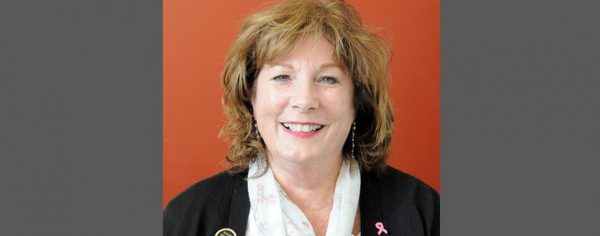Women Veterans Committee Update March/April 2021

BY KATE O’HARE-PALMER, CHAIR
The Johnny Isakson and David P. Roe, M.D., Veterans Health Care and Benefits Improvement Act of 2020, which included the Deborah Sampson Act, resolved some parts of our resolutions dealing with medical treatment, women veteran program managers, women veterans research, and benefits. We welcome the positive work in Congress and look forward to monitoring the results this next year. Below are highlights of some of the Women Veterans Committee Resolutions.
WV-2 Medical Treatment of Women Veterans: The committee continues to work with other veterans service organizations to identify, quantify, and review the areas of most concern for women veterans in the VA. The anticipated growth of the number of women veterans should be considered in all strategic plans, facility construction and utilization, and human capital needs. There have been reproductive health care expansions in programs but more fertility workups and fertility solutions regardless of marital status need to be included.
Sexual trauma care needs to be readily available in the VA health care system to all veterans and members of the National Guard and Reserves. The Secretary of Veterans Affairs needs to conduct a nationwide analysis of the need for VA programs that treat and rehabilitate women veterans with drug and alcohol dependency. Pilot program findings and conclusions should be submitted to the House and Senate Veterans’ Affairs Committees. The VA Caregiver Expansion Bill has opened up accessibility for Vietnam veterans, and information for veteran families is being reported at the national and local levels.
https://www.federalregister.gov/documents/2020/07/31/2020-15931/program-of-comprehensive-assistance-for-family-caregivers-improvements-and-amendments-under-the-va
WV-3 Support for Women Veterans: VVA continues to help women veterans in outreach and identification and in developing women-veteran-friendly support and positive recognition. We are working with the Center for Women Veterans on health care and benefit needs for senior women veterans. VVA’s Women Veterans Honor Coin was a great success, and we now have lapel pins with the same image. Past resolutions for creating newer apps for women veterans have been developed by the VA with positive feedback.
WV-5 Women Veterans Research: We agree with Rep. Julia Brownley (D-Calif.), who is working on new legislation that looks into a continued study of the relationship of toxic exposures during military training and service to infertility of veterans. We also need continued comprehensive evaluation of suicide among women veterans, including rates of both attempted and completed suicides, and risk factors such as co-morbid diagnoses, substance abuse, history of sexual trauma or sexual harassment, harassment, bullying, intimate partner violence, unemployment, deployments, and homelessness.
WV-8 Military Sexual Trauma: The Departments of Defense and Veterans Affairs acknowledged sexual trauma as a crime under the Uniform Code of Military Justice in the Defense Authorization Act of 2005. The Military Justice Improvement Act of 2014 was enacted with hopes of solving these injustices. The rates of military sexual trauma continue to increase. There remains gross neglect in the command structure. Programs such as the Sexual Assault and Prevention Response Office and Sexual Harassment/Assault Response and Prevention have not helped.
We have asked for years for the creation of a separate and independent office to address such crimes as a way to remove barriers to reporting, and providing additional protection and safety for the victims. Our committee resolves that the House Armed Services Committee ensures that penalties for military sexual trauma under the Uniform Code of Military Justice are enforced in all branches of the military. We request that the congressional Veterans Committees examine, share, and expand the Ft. Hood independent review guidelines and recommendations to DOD to include all military facilities. There should be more Victim Advocates, comprised of civilian and uniformed personnel, at all military installations. This past year has seen an incredible array of government officials undermining sexual assault claims in their agencies. These government officials should be removed from their positions if found guilty of such actions.



